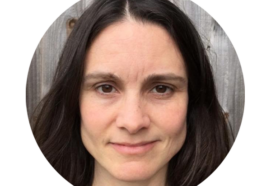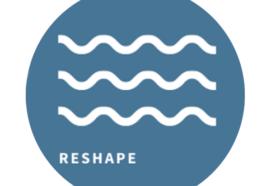In March 2021, I was halfway through my PhD. I was investigating the efficacy of a school’s mental health strategy through the eyes of the young people who were experiencing it on a day-to-day basis. I was just about to start collecting my empirical data, and I wrote this blog (10.13056/acamh.15247) as the preparatory reading I had been doing sparked connections with my lived experience as a teacher of 35 years plus.
The blog suggested that the changing experiences in my career, which started in the early 1980s, could be explained by policy reform dating back to the Thatcher (1995) era of government. She pushed a philosophy of ‘self’ as an alternative to the ‘dependency culture’ she saw as ruining society. The neoliberal agenda took hold as schools were marketised through ‘performance’. Exams became the currency required to succeed, piling pressure on teachers and young people. Values in schools changed as school success became more important than the young person. Ball (2021) summed it up perfectly: “Value replaces values except where it can be shown that values add value”.
Research has shown that many risk factors influence young people’s mental health needs, one of which is school expectations (Bostwick, R & Glazzard, 2018). In my career, I saw a ramping up of expectations, fuelled by OFSTED, league tables and increasingly stretched targets. The pressure on both staff and young people was becoming intolerable, and this has been further amplified by the issues caused by the pandemic. The youth mental health crisis continues, with one in six young people (aged 6-16) having a probable mental health problem (NHS Lifestyle Teams, 2021). My research aimed to determine what young people thought of their mental health strategy. However, the way in which the research process developed suggests schools have much more to offer than just specific mental health support.
School Research
As a teacher returning to my old school to conduct research with ex-students, I was conscious that my previous position as assistant headteacher would create power imbalances within the research process. Young people in the school may not have felt comfortable enough to provide reliable research findings. I, therefore, developed an idea suggested to me by the young people in a pre-research Patient and Public Initiative (PPI) exercise. They told me they would feel far more comfortable talking to sixth-formers than talking to an ex-teacher like me. I, therefore, recruited volunteers from the school’s sixth form who became a young research team (YRT). Together we developed an action research process whereby they had weekly meetings with younger volunteer participants, after which I would meet with each team member to record and discuss their meetings. We met as a team at the end of each week to learn from our work together and to plan for the next round of research meetings.
My approach was based on the Youth Participative Action Research (YPAR) principle. However, whilst this work was ongoing, I also came across an alternative method which embodied exactly what I was trying to do. Critical Communicative Methodology (CCM) (Latorre Beltran & Gómez, 2005) drew on core postulates developed by Habermas, which included ‘Universality of Language’, ‘Absence of Interpretative hierarchy’ and ‘Equal Epistemology’. These were aimed at developing a balanced research relationship between participants and researchers. The researcher brought academic knowledge, while the participants brought their lived experiences. Both aspects were equally important to the research, and both researcher and participants had equal power within this relationship. Using this approach as part of iterative action research cycles, I synthesised the two methods to develop a methodology I call Youth Participative Dialogic Action Research (YPDAR). By collaborating with my YRT, I was following the principles of CCM; we were working on an equal epistemological level that saw them bring knowledge from their life in school (their lived experience) whilst I brought my academic knowledge. The process we used incorporated iterative action research taking place over many weeks. My work was strongly influenced by the philosophy of Paulo Freire, an educator who advocated for critical pedagogy, which I briefly explore below.
From theory to practice
For many years I had listened to school leaders talking about critical pedagogy and how this can help develop young people. However, it seems many have become victims of neoliberalism and slaves to the market of exams, as schools rarely find time in the curriculum for such approaches. Freire (1970) describes this as ‘banking’ education, where educators attempt to fill young people with knowledge, the extra classes on a Saturday morning, English or Maths, instead of a drama or PE lesson. However, in contrast, my research championed his ‘problem posing’ education, where we learnt from each other. We worked on an equal footing, collaborating and solving problems as we went along. The YRT and participants started to cultivate their reflexive and reflective skills as they developed their critical consciousness. This was not about transferring knowledge from one to another but creating possibilities for developing and constructing knowledge together (Freire, 1998). The young people involved in the research were no longer what Freire (1998) called passive “beings” in the world but were the active “presence” interacting in relation to the world and others in the world. The warnings against neoliberalism and the “ethics of the market” Freire (1998) had given had largely been ignored. However, I believe this research gives us an opportunity to help rebalance schools by adopting YPDAR approaches that can help cultivate the critical-thinking young people of the future.
Young researchers helping to improve school engagement
While my research focused on evaluating the whole school mental health strategy, I also started to recognise the benefits of working this way with young people in school. The YRT and the participants started to report the benefits of working this way. They reported their growing confidence, they enjoyed being taken seriously by the school, and as a result, their trust in the school was also improving. The young people also described feelings of increasing empowerment, particularly the YRT. The relationship between the YRT and their participants also became integral to the research process. The participants cited the weekly meetings as the single best part of the project. I noticed how the relationships were developing, the YRT members grew into their roles, and they started looking out for their peer participants and helping them outside their research relationship. The burgeoning relationships between the two groups reminded me of how Koehn & Kerns, (2018) suggest that secure attachment develops. These were relationships built on trust, communication and lack of disaffection; they were truly attachment-like.
This research process could be viewed as developing young people’s socio-emotional skills and competencies. Mcneil & Stuart (2022) define these competencies as emotional management, empathy, responsibility, teamwork, initiative and problem-solving, all of which were enhanced during this research.
Whilst I did not ask the question, one of the participants volunteered to tell her YRT partner that this work had improved her mental health. We did not have the time to delve into this further, but I started to consider the wider benefits of this type of research in schools. Young people who got involved felt more empowered, they started to trust the school, and as a result, their confidence grew as did their agency to act. My curiosity pushes me to explore this further. If these approaches could become the norm in schools, staff working with young people on student-generated research projects, the benefits for school engagement and school culture could be enormous. A longitudinal study is required to explore the advantages and challenges of YPDAR as a school improvement approach. I need to test whether the changes young people experienced are enduring over a longer period and whether this work can positively impact school engagement and culture.
Conclusion
My research findings should not surprise anyone. As someone who undertook teacher training at the same time as Pink Floyd’s “Another Brick in the Wall” was released, it is clear how we have arrived at this point despite being warned by Paulo Freire! In my blog in 2021, I wrote about how changes in school values have negatively impacted education. This research has shown that we can start reversing the trends of the last 40 years by developing approaches that help our young people to help themselves and thus enable self-growth. We still have an opportunity to help rebalance schools by using approaches such as YPDAR, where young people and staff work side by side to improve school experiences as well as develop young people as critical thinkers of the future.
Other resources
- Blog ‘Redistributing power in schools and how this can impact young people’s agency and identity’ by Dave McPartlan (September 2023)
- Blog ‘Mental Health in schools: learning lessons from the past’ by Dave McPartlan (March 2021)
Bibliography
- Bostwick, R & Glazzard, J. (2018). Positive Mental Health: A whole school approach (1st ed.). St. Albans: Critical Publishing.
- Freire. (1998). Pedagogy of Freedom. Lanham: Rowman and Littlefield.
- Freire, P. (1970). Pedagogy of the Oppressed. London: Penguin.
- Koehn, A & Kerns, K. (2018). Parent–child attachment: meta-analysis of associations with parenting behaviors in middle childhood. Attachment & Human Development, 20(4), 378-405,. https://doi.org/https://www.tandfonline.com/action/showCitFormats?doi=10.1080/14616734.2017.1408131
- Latorre Beltran, A., & Gómez, J. (2005). Critical Communicative Methodology. First International Congress of Qualitative Inquire. University. Retrieved from http://www.iiqi.org/C4QI/httpdocs/qi2005/papers/beltran.pdf
- Mcneil, B. & Stuart, K. (2022). A Framework of Outcomes for Young People 2.1. In The Centre for Youth Impact. https://doi.org/10.2307/j.ctv29sfz5s.9
- Teams, L. (2021). NHS Digital.
- Thatcher, M. (1995). The Downing Street Years. London: Harper Collins.



Discussion
I love the emphasis of your PHD and want to know what we can learn from this as a model to enable YP involvement in our whole school approach to positive mental health to improve the school structures by ensuring children and young people have a voice and are heard to improve the system.
Hi Debbie,
Thanks for the comments. The findings from my research were clear that young people (both the YRT and participants) benefited from the research in many ways. In my thesis I suggest a model for school improvement from the young person’s perspective and I do suggest the long term impact will be benefitial on both young people and the ‘character’ of the school.
Feel free to email me if you want to discuss further
I have a program that I developed for schools. I would love to get your input.
Hi Brenda, I will send you an email.
Dave
Really interesting research. I’m looking to conduct something similar for young people with ADHD. Do you have a link to more information about your research? Or would you be happy to talk? Thanks.
Thanks Abbey, have contacted you.